By Tom Squitieri
Red Snow News
WASHINGTON — As friends of Ukraine prepare for another NATO summit and another round of possible funding for Kiev, there are increasing warnings that the West is missing the larger picture of how Russian President Putin operates and how Moscow’s game plan is still afoot and pungent.
“Our approach to Russia needs to change to precisely to avoid war — and we are not there yet,” Anna Borshchevskaya, a senior fellow at The Washington Institute, said in an interview.
“It seems that they (the West) are dithering,” she said. “They seem to understand it (the Putin/Russian game plan) but that they do not take it to logical conclusions.”
She sharply noted that “for years, key leaders (such as Henry Kissinger) talked about how specifically, the need that Ukraine should not be part of NATO because it would lead to a war with Russia. Now (they)
understand that it is keeping Ukraine out of NATO that led precisely to the very war (they were) trying to avoid.”
As the latest phase of the Ukraine-Russian war heads to its second winter, there are rising voices outlining how a stalemate, a political conclusion, or anything short of a clear, outright Russian defeat will merely be a win for Putin and set the stage for further forays and invasions.
Borshchevskaya has been clear in her sharp portrayal of Putin and Russia’s worldwide game plan. At the Washington Institute, she focuses on Russia’s policy toward the Middle East, the subject of her upcoming book, “Putin’s War in Syria: Russian Foreign Policy and the Price of America’s Absence.” In addition, she is a fellow at the European Foundation for Democracy. She was previously with the Atlantic Council and the Peterson Institute for International Economics.
“We need to look beyond Ukraine to achieve that goal (of defeating Russia),” Borshchevskaya said. She said that the “bigger part of the story” is how Russian continues to find resources outside “the liberal free world” and how its narrative resonates in these parts of the world far better than the narrative from the United States or Europe.
The West’s narrative is seen as hypocritical by the other parts of the world, who view the Ukraine-Russian war as a “local European conflict,” she said.
She also said other nations see how the U.S. and Europe rushed aid — “spared no expense” — to help Ukraine but did not do so to thwart Iranian aggression in the Middle East or address other needs elsewhere.
Meanwhile Russia understands “they cannot confront the West alone,” she said. Thus Russia’s wooing of China and India and to a lesser extent Iran and North Korea because “they need to court allies, partners and adversaries.”
That is also why Russian avidly is in Africa, looking to boost support among those nations for critical votes in the U.N. general assembly, she said.
By contrast, the U.S. thinks that by asking India or Saudi Arabia or others to “do something,” that is enough to have them do it. “That is not the way it works,” Borshchevskaya said.
Borshchevskaya said that once Putin rolled through Georgia, Crimea, and Syria and never paid a price, he had a green light to continue. “Appetite comes with eating,” she said.
In regards to the October NATO summit, she said the key to watch is how precise NATO will be in terms of steps to be taken for Ukraine’s eventual entry into the alliance.
“Will Western leaders provide some specifics? Or will it be another summit full of generalities and platitudes and aspirational language,” Borshchevskaya said.
The answer will be in the reaction of Ukraine President Zelensky — and Putin, she said.
(Photo: Anna Borshchevskaya, The Washington Institute)











